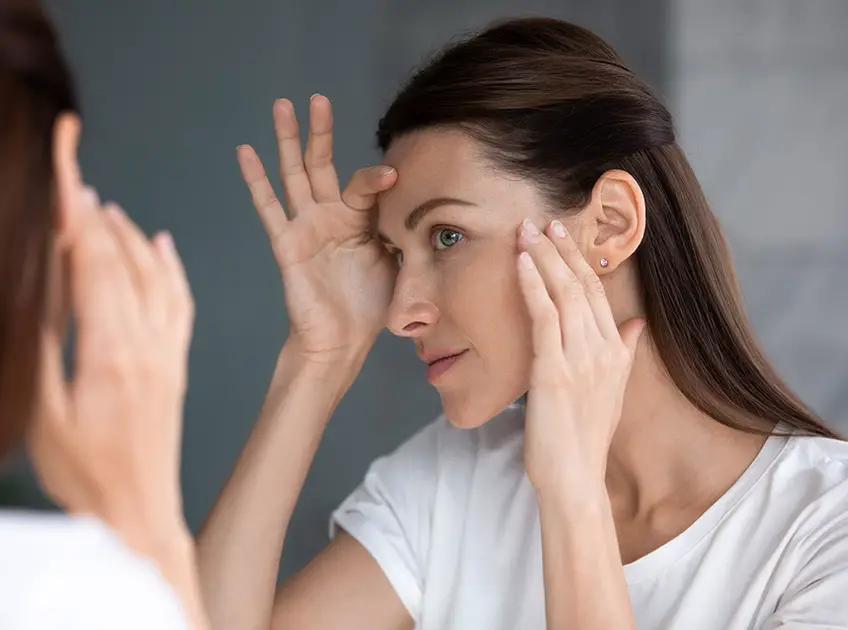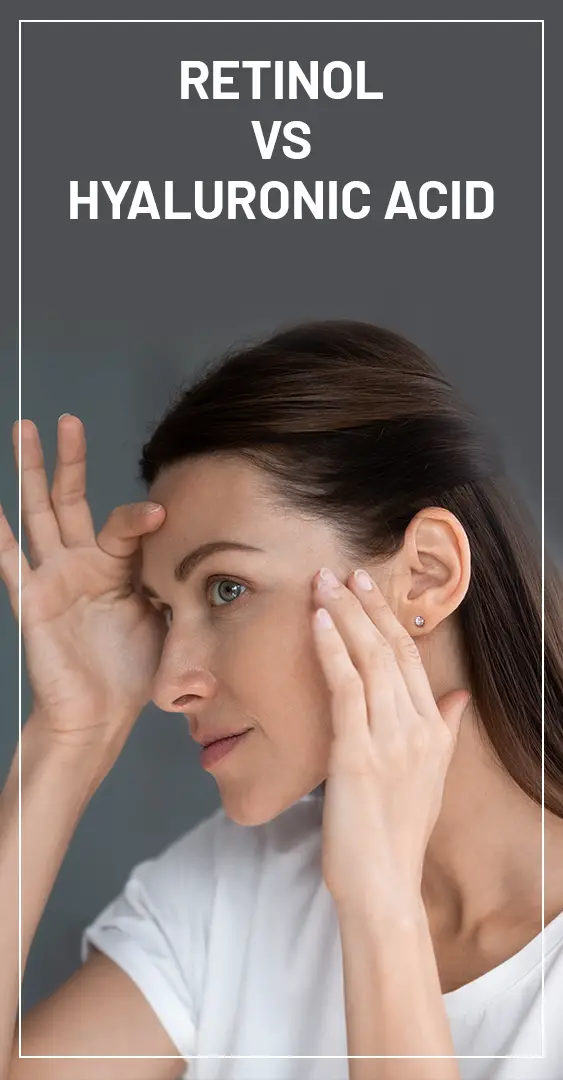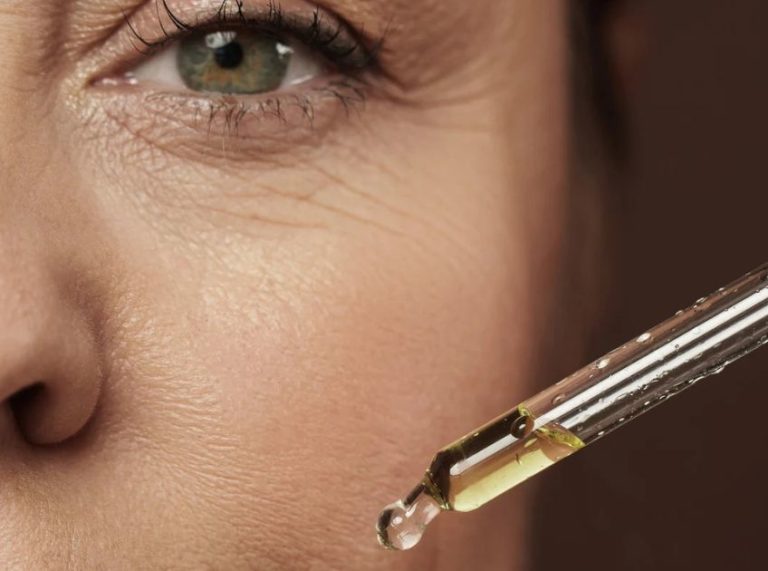
Important: This article is for informational purposes only. Please read our full disclaimer for more details.
Retinol and hyaluronic acid- are the two most popular skincare ingredients. However, when it comes to deciding which is better and which is right for your skin, detailed know-how is essential. Many people also wonder if it is safe to use two of these two ingredients together. If you are also in the same dilemma, continue reading to know more about retinol and hyaluronic acid.
Retinol Vs Hyaluronic Acid
Hyaluronic Acid

Hyaluronic acid is naturally present in the skin. It can bind up to 1000 times its weight in water. It is a humectant that helps to moisturize the skin naturally by drawing water into the skin and holding it there. If you think it has ‘acid’ in its name, therefore not suitable for the skin, it is contrary to this belief. Hyaluronic acid hydrates the skin and nourishes it deeply. However, it does not contribute to exfoliating the skin.
Other Benefits Of Hyaluronic Acid Include
- Increases skin elasticity by keeping it hydrated and well-moisturized, it means the skin returns to its original form when pulled or poked.
- Reduces the appearance of aging signs. Due to its deeply hydrating properties, hyaluronic acid fades fine lines and wrinkles that appear with age.
- Reduces bacterial growth and inflammation.
- Heals wounds
Over time, the body’s tendency to produce hyaluronic acid decreases. As a result, the volume of the dermis and epidermal skin cells decreases, and the skin starts getting dehydrated. As the skin dehydrates, it becomes dry, cracked, and irritated. The elasticity of the skin also reduces which makes it less supple and bouncy. It makes fine lines and wrinkles easily visible.
Retinol

Retinol is a form of Vitamin A and one of the major ingredients in the majority of skincare products. When retinol comes in contact with skin, it penetrates deep and converts into retinoic acid- an active form of retinol. It can treat a wide range of skin conditions as it is proven scientifically to enhance the skin on a cellular level, therefore often prescribed by dermatologists. Apart from delivering Vitamin A to the skin, retinol is also an anti-oxidant that increases the rate with which new skin cells are made. By hastening the process of new cell formation, retinol moves the dead cells to the skin’s surface in order to be shed.
Other Benefits Of Retinol
- Boosts collagen production
- Acts as anti-inflammation
- Reduces acne scarring
- Unclogs pores
- Treats acne
- Prevents melanin production and thus reduces pigmentation
- Increases skin cell turnover
- Improves skin texture and tone by reducing fine lines and wrinkles
Even though there are plenty of benefits of retinol, it often causes skin irritation to people with sensitive skin. When used in incorrect ways, retinol can also lead to multiple skin conditions and make the existing skin conditions worse. Therefore, the application of retinol in the right ways as preferably as directed by the dermatologist is essential. The good news is retinol takes fewer conversions to reach its active form, therefore, it is less irritating than other retinoids like differin, retinal, tretinoin, etc.
Hyaluronic Acid Vs. Retinol
The major difference between these two ingredients is hyaluronic acid is hydrating in its properties while retinol is antioxidant and increases the skin cell turnover. The benefit of retinol is it increases the different types of hyaluronic acid naturally present in the skin. Additionally, retinol acts as a catalyst in increasing hyaluronic acid production in the skin. However, it takes time to do so, therefore, a regular application of skincare ingredients with retinol is recommended.
In a nutshell, the function of these two can be jotted as
- Hyaluronic acid- Hydrates the epidermis of the skin quickly
- Retinol- Hydrates the dermis of the skin slowly but the results are long-lasting
The best way to get maximum benefits from these two ingredients is to use them together. Both of them complement each other and work in support of each other. Regular use of skin care products with retinol and hyaluronic acid improves skin issues, especially aging signs like fine lines and wrinkles, aging spots, marks, and blemishes. The skin becomes glowing and radiates after eight weeks of regular use and the result lasts for more than four weeks. Retinol and Hyaluronic acid do wonders to the skin when used in the correct ways. From increasing the skin cell turnover to providing long-term and short-term skin hydration, everything with this product is excellent. You can use hyaluronic acid twice a day and retinol once a day to make the most out of your skincare products. Even though these ingredients are superlative for the skin, it is recommended to perform a patch test to avoid skin irritation.
You Might Also Like:
- How to Get Clear Skin Naturally at Home
- How To Use A Jade Roller In Your Skincare Routine
- How To Use Toner?
- Bakuchiol Vs Retinol: Which Is Better for Your Skin?

















